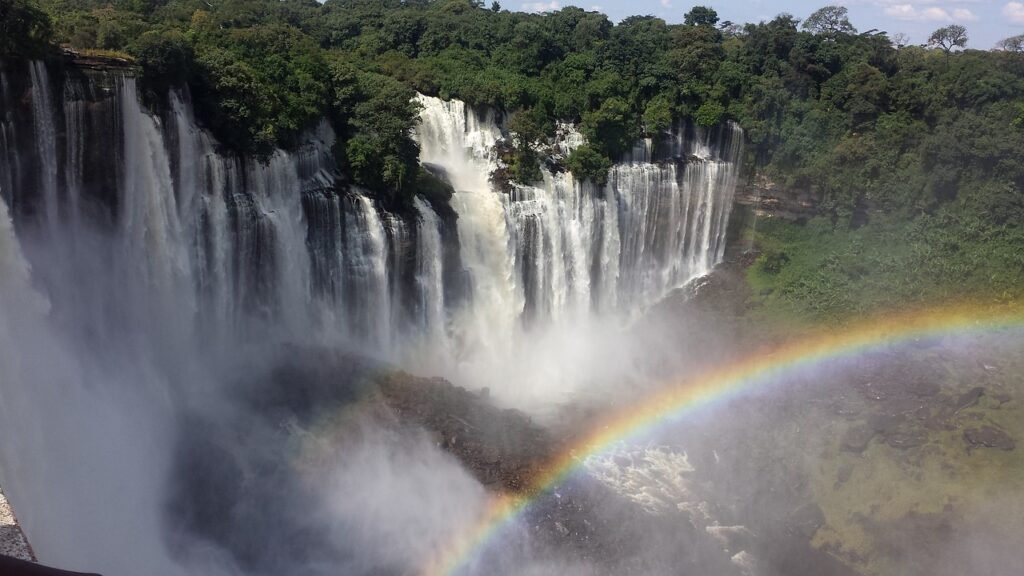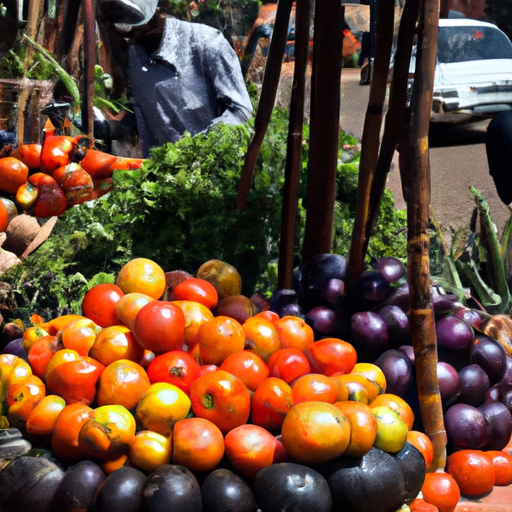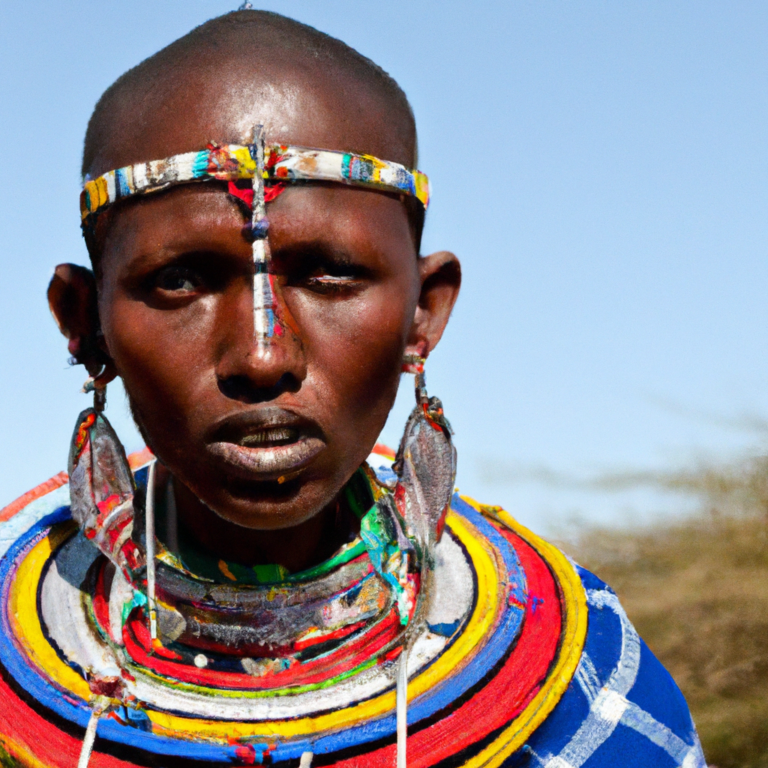How Do Kenyans Engage In Sustainable Tourism Practices?
Have you ever wondered how Kenyans are actively involved in sustainable tourism practices? With its diverse ecosystems and breathtaking landscapes, Kenya has become a popular destination for eco-conscious travelers. From supporting local communities to conserving wildlife, Kenyans are playing a vital role in ensuring that tourism in their country is sustainable and benefits both the environment and the people. In this article, we will explore various ways in which Kenyans actively engage in sustainable tourism practices, showcasing their commitment to preserving their natural treasures for future generations to enjoy.

This image is property of pixabay.com.
Ecotourism in Kenya
Definition of ecotourism
Ecotourism is a form of tourism that focuses on experiencing and appreciating the natural and cultural heritage of a destination while preserving and conserving the environment. It involves responsible travel to natural areas, with the objective of supporting conservation efforts and benefiting local communities.
Importance of ecotourism in Kenya
Ecotourism plays a crucial role in Kenya’s sustainable development by generating revenue, conserving natural resources, and providing employment opportunities. With its diverse landscapes, rich wildlife, and vibrant culture, Kenya has become a popular destination for eco-conscious travelers. The revenue generated from ecotourism contributes to the conservation and protection of Kenya’s national parks and reserves, ensuring the long-term survival of its unique flora and fauna.
Role of Kenyans in promoting ecotourism
Kenyans play a significant role in promoting ecotourism in their country. They are actively engaged in guiding, managing lodges, wildlife conservation, and community development initiatives. Kenyan tour guides are highly knowledgeable about local flora and fauna, providing insightful information to visitors and promoting environmental awareness. Local communities actively participate in the development and management of ecotourism projects, ensuring that the benefits are shared and sustainable practices are followed.
Community-Based Tourism
Definition of community-based tourism
Community-based tourism involves the active participation of local communities in tourism development and management. It aims to empower communities, preserve cultural heritage, and generate economic benefits for local residents. By involving communities in decision-making processes and providing them with direct benefits, community-based tourism fosters a sense of ownership and encourages sustainable practices.
Benefits of community-based tourism in Kenya
Community-based tourism in Kenya has numerous benefits. It provides income opportunities for locals through the provision of accommodation, guided tours, and the sale of handicrafts. By incorporating local customs, traditions, and practices into tourism experiences, community-based tourism helps preserve cultural heritage. Additionally, it creates a platform for cultural exchange between tourists and locals, fostering mutual understanding and respect.
Examples of community-based tourism initiatives in Kenya
Kenya boasts several successful community-based tourism initiatives. One such initiative is the Maasai Mara Homestays, where Maasai families provide accommodation and cultural experiences to visitors. The initiative allows tourists to immerse themselves in the Maasai way of life while directly supporting the local community. Another example is the Samburu Eco-Lodge, which is owned and managed by the Samburu people. The lodge showcases traditional Samburu culture and provides employment opportunities for the community, ensuring a sustainable future.

This image is property of pixabay.com.
Wildlife Conservation Efforts
Conservation initiatives in national parks and reserves
Kenya’s national parks and reserves are at the forefront of wildlife conservation efforts. Organizations such as the Kenya Wildlife Service (KWS) work tirelessly to protect and preserve the country’s diverse wildlife. They implement anti-poaching measures, conduct research on endangered species, and manage habitat restoration projects. Strict regulations and patrols are in place to combat illegal activities such as poaching and habitat destruction.
Role of local communities in wildlife conservation
Local communities play a crucial role in wildlife conservation in Kenya. They act as the custodians of their land and are actively involved in conservation efforts. Community-led anti-poaching initiatives, such as the Big Life Foundation, have been successful in reducing poaching rates. By engaging in wildlife monitoring, reporting illegal activities, and participating in conservation education programs, local communities collaborate with organizations like KWS to protect Kenya’s wildlife heritage.
Success stories in wildlife conservation
Kenya has witnessed several success stories in wildlife conservation. The reintroduction of black rhinos in the Meru National Park, an initiative led by the Kenya Wildlife Service, has resulted in a steady increase in the rhino population. The Amboseli Trust for Elephants has played a significant role in protecting the elephant population in Amboseli National Park through long-term research and community engagement. These success stories demonstrate the effectiveness of collaborative efforts between conservation organizations, local communities, and the government.
Promotion of Cultural Heritage
Preservation of traditional practices and customs
The promotion and preservation of Kenya’s cultural heritage are integral to sustainable tourism practices. Kenyans recognize the value of their traditions and actively work to preserve them. Efforts are made to protect cultural practices such as storytelling, music, dance, and traditional ceremonies. By embracing and showcasing these traditions, Kenyans ensure that future generations inherit their rich cultural heritage.
Promotion of cultural festivals and events
Cultural festivals and events serve as platforms to celebrate and showcase Kenya’s diverse cultural heritage. The Lamu Cultural Festival, held on Lamu Island, is a vibrant celebration of Swahili culture featuring traditional dances, music, art, and cuisine. The Maralal Camel Derby, held in Samburu County, highlights the nomadic culture of the region while attracting tourists from around the world. These events not only preserve cultural practices but also promote tourism and economic opportunities for local communities.
Empowerment of local artisans and craftsmen
Kenyan artisans and craftsmen play an essential role in promoting cultural heritage. Local communities engage in traditional crafts such as beadwork, weaving, carving, and pottery, creating unique handicrafts that reflect their cultural identity. By purchasing these crafts and supporting local artisans, tourists contribute to the preservation of cultural traditions and provide economic empowerment to local communities.

This image is property of pixabay.com.
Training and Education Programs
Tourism-related vocational training programs
To enhance the quality of tourism experiences and promote sustainability, Kenya has implemented tourism-related vocational training programs. These programs provide training in areas such as tour guiding, hospitality management, and customer service. By equipping individuals with the necessary skills and knowledge, Kenya ensures that its tourism industry is staffed with competent professionals who understand the importance of sustainability.
Environmental education initiatives
Environmental education initiatives are crucial in fostering a sense of responsibility towards the environment. Organizations such as the Kenya Wildlife Trust and the Kenya Forestry Service conduct educational programs to raise awareness about conservation, sustainable practices, and the importance of preserving natural resources. These initiatives target both locals and tourists, ensuring that all stakeholders are knowledgeable about their role in protecting Kenya’s natural heritage.
Awareness campaigns on sustainable tourism practices
Awareness campaigns are conducted at various levels to promote sustainable tourism practices. The Kenya Tourism Board, in collaboration with other stakeholders, conducts campaigns highlighting the importance of responsible travel, waste management, and energy conservation. Through these campaigns, Kenyans and tourists alike are encouraged to adopt sustainable behaviors that minimize negative impacts on the environment and local communities.
Social and Economic Benefits
Job creation and economic opportunities
Sustainable tourism practices in Kenya contribute significantly to job creation and economic opportunities. The tourism sector employs a large number of Kenyans, ranging from tour guides to hotel staff and artisans. By diversifying income sources and providing employment, sustainable tourism reduces poverty and improves the standard of living for local communities.
Improved infrastructure and services
The development of sustainable tourism often leads to improved infrastructure and services in local communities. Investments in roads, transportation, healthcare, and education are made to cater to the needs of tourists and enhance the overall quality of life for residents. This improved infrastructure not only benefits tourists but also contributes to the well-being and development of local communities.
Enhanced social cohesion and community development
Sustainable tourism practices promote social cohesion and community development in Kenya. By involving local communities in tourism initiatives, a sense of unity and collaboration is fostered. Communities are empowered to take ownership of their resources and actively participate in decision-making processes. This engagement strengthens social ties, creates opportunities for cultural exchange, and enhances community resilience.
Partnerships and Collaboration
Public-private partnerships in sustainable tourism
Public-private partnerships play a vital role in promoting sustainable tourism practices in Kenya. Collaboration between the government, private sector, and non-governmental organizations (NGOs) ensures the effective management and development of tourist destinations. These partnerships help create a conducive environment for sustainable tourism by sharing resources, expertise, and responsibilities.
Collaborations with NGOs and international organizations
NGOs and international organizations work closely with Kenyans to support sustainable tourism initiatives. Organizations such as the World Wildlife Fund (WWF), Conservation Alliance of Kenya (CAK), and Sustainable Travel International provide technical assistance, funding, and capacity-building programs. By collaborating with these organizations, Kenyans benefit from global best practices and innovative approaches to sustainable tourism.
Networking and knowledge-sharing platforms
Networking and knowledge-sharing platforms facilitate the exchange of ideas, experiences, and best practices in sustainable tourism. Forums, conferences, and online platforms bring together industry professionals, environmentalists, academics, and community representatives to discuss challenges and solutions. These platforms inspire innovation, promote learning, and foster collaboration among individuals and organizations working towards sustainable tourism in Kenya.
Waste Management and Recycling
Sustainable waste management practices
Efficient waste management is a crucial aspect of sustainable tourism in Kenya. Tourism establishments, such as hotels and lodges, adopt sustainable waste management practices such as waste reduction, recycling, and proper disposal. Recycling facilities and composting systems are implemented to minimize the environmental impact of tourism activities and ensure the responsible handling of waste.
Recycling initiatives in tourism establishments
Many tourism establishments in Kenya have taken proactive measures to promote recycling. Recycling bins are placed throughout hotels and lodges, allowing guests to separate recyclable materials from general waste. Some establishments also partner with local recycling companies to ensure that recyclable materials are effectively processed and reused.
Public awareness on reducing waste
Public awareness campaigns are conducted to educate both tourists and locals about the importance of reducing waste. Information is disseminated through brochures, signage, and social media platforms, emphasizing the role individuals can play in waste reduction. By raising awareness and encouraging responsible waste management practices, Kenya aims to minimize the environmental impact of tourism and preserve its natural beauty.
Renewable Energy Sources
Adoption of solar and wind energy
Kenya has made significant strides in adopting renewable energy sources, such as solar and wind energy, in the tourism sector. Many lodges and hotels have installed solar panels to generate electricity for their operations. Additionally, some establishments utilize wind power to meet their energy needs. These initiatives reduce reliance on traditional energy sources and contribute to a greener and more sustainable tourism industry.
Use of biogas and biomass for energy
The use of biogas and biomass for energy generation is another sustainable practice embraced by the Kenyan tourism industry. Biogas digesters are installed in some lodges, utilizing organic waste to produce biogas for cooking and heating. Biomass, such as agricultural residue and wood chips, is also used as a renewable energy source. These practices reduce carbon emissions, promote energy efficiency, and support the transition to a low-carbon economy.
Energy-efficient practices in accommodations
Energy-efficient practices are implemented in accommodations to minimize energy consumption. Energy-efficient lighting systems, insulation, and water heating systems are installed to reduce energy waste. Guests are encouraged to conserve energy by switching off lights and air conditioning when not in use. By adopting these practices, accommodations contribute to sustainable energy development and mitigate the impacts of tourism on the environment.
Tourism Certification and Standards
Certification programs for sustainable tourism
Certification programs are in place to recognize and promote sustainable tourism practices in Kenya. The EcoTourism Kenya certification, for example, certifies accommodations, tour operators, and attractions that meet specific environmental, social, and financial criteria. These certifications help travelers make informed choices, encourage industry-wide adoption of sustainable practices, and recognize the efforts of businesses committed to sustainability.
Accommodation and tour operator standards
Accommodations and tour operators in Kenya are encouraged to meet specific standards to ensure sustainable tourism practices. These standards cover areas such as waste management, energy efficiency, water conservation, and community engagement. By adhering to these standards, accommodations and tour operators contribute to the overall sustainability of the tourism industry and provide visitors with responsible and authentic experiences.
Monitoring and evaluation of sustainable practices
Monitoring and evaluation mechanisms are essential to assess the effectiveness of sustainable tourism practices in Kenya. The government, in collaboration with relevant organizations, conducts regular assessments of tourism establishments to ensure compliance with established standards. Through monitoring and evaluation, gaps and areas for improvement are identified, enabling continuous enhancement of sustainable practices in the tourism sector.
In conclusion, Kenyans are actively engaged in various sustainable tourism practices to ensure the long-term conservation of their natural and cultural heritage. Through ecotourism, community-based tourism, wildlife conservation efforts, promotion of cultural heritage, training and education programs, social and economic benefits, partnerships and collaboration, waste management and recycling, the use of renewable energy sources, and adherence to tourism certification and standards, Kenyans are contributing to the sustainable development of the tourism industry and the preservation of their unique country for future generations to enjoy.






